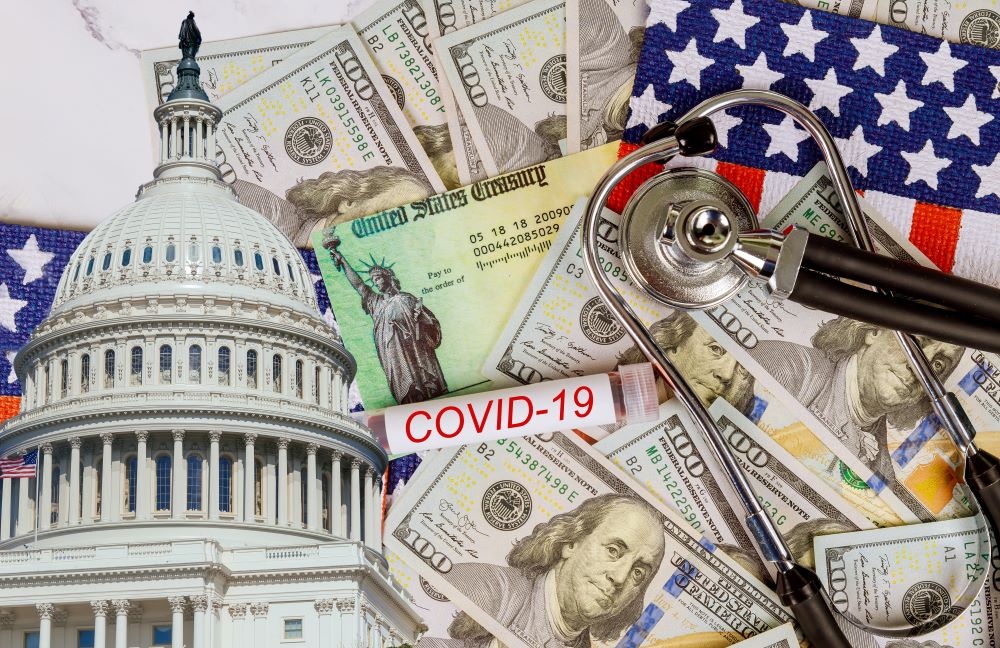COVID-19 Relief Bill Expands Business Tax Savings

On December 27, 2020, President Trump delivered a late holiday gift to Princeton, Trenton, and other New Jersey-area businesses when he signed the COVID-19 relief bill into law. The Continuing Appropriations Act, 2021 (the Act) is only the second time Congress has passed COVID-19 relief to help sustain and bolster the economy. There had been months of debate about the type and amount of relief that left the process in limbo for most of the year. However, the good news is the Act provides significant tax changes, which will create new and expanded saving opportunities in the New Year.
To help clients, prospects, and others, Klatzkin has summarized the Act’s key business tax changes below.
- Paycheck Protection Program (PPP) Loan Tax Treatment – There has been an ongoing “tug of war” between Congress and the IRS on whether forgiven PPP loan expenses are eligible for deduction. Most recently, the IRS issued Revenue Ruling 2020-27, which reaffirmed that forgiven expenses could not be deducted. In a strong rebuke, the Act explicitly states that borrowers can deduct expenses paid with PPP loan funds.
- Business Meal Deductions – The Tax Cuts and Jobs Act (TCJA) limited the deduction for business meals over the past few years to 50%, with several exceptions. The Act has increased the deduction to 100% for qualifying meals purchased in restaurants for 2021 and 2022.
- Repayment of Deferred Payroll Taxes – On August 8, 2020, President Trump issued a Memorandum that allowed employers to defer the withholding, deposit, and payment of an employee’s 6.2% Social Security taxes September 30, 2020, and December 31, 2020. Initially, participating employers were required to make repayment between January 1 and April 30, 2021. However, the deadline has been extended to December 31, 2021, giving an extension of eight months.
- Employee Retention Tax Credit – When passed as part of the CARES Act, employers adversely impacted by COVID-19 received a refundable credit for up to 50% of qualified wages, including health benefits, paid to employees and if you received a PPP loan you did not qualify for the ERC. The Act increases the credit percentage to 70%, changes the annual cap to $10,000 per quarter, extends the credit through June 2021, the new gross receipts test is based on gross receipts for any quarter of the first half of 2021 being less than 80% of the same quarter in 2019, under the Act an employer can now pay bonuses to an employee and increase the credit subject to the $10,000 cap, and allows employers with less than 500 employees to claim an advance credit payment. These changes are effective starting on January 1, 2021, and are not retroactive. Section 206 of the Act allows businesses to retroactively take the ERC for payroll dating back to March of 2020 even if the business received a PPP loan assuming certain qualifications are met.
- Section 45S Payroll Tax Credit – The Act also extends through March 31, 2021. The payroll tax credits available to employers who provide paid family and medical leave. Originally designed to help alleviate the cost of leave, employers receive a 100% refundable tax credit against the employer’s portion of Social Security taxes. However, the Act does not mandate employers to provide leave, which is currently the case. The expiration date for the original mandate is December 31, 2020, which has not been changed.
- Employer Payment of Student Loans – As part of the CARES Act, employers were allowed to make principal, or interest payments on certain employee qualified education loans through the end of the year. The Act extended this change to allow these tax-free payments through December 31, 2025. While many did not take advantage of COVID-19, there may be an opportunity for employers with a (Section 127) educational assistance plan.
Tax Extenders Update
As is customary at year-end, Congress also extended several tax provisions as part of the relief bill. There was only one benefit, which was not extended, while others were extended for a period of one or five years. A five-year extension was made of the New Markets Tax Credit, Work Opportunity Tax Credit, Empowerment Zone tax incentives, employer credit for paid family and medical leave, an extension of the carbon oxide sequestration credit, and a seven-year recovery period for motorsports entertainment complexes.
Contact Us
The changes made in the Continuing Appropriations Act, 2021 are welcome news for businesses as the COVID-19 pandemic extends into the New Year. The expanded saving opportunities will help many solidify their financial position. If you have questions about the information outlined above or need assistance with another tax or accounting issue, Klatzkin can help. For additional information, click here to contact us. We look forward to speaking with you soon.
©2020 Klatzkin & Company LLP. The above represents our best understanding and interpretation of the material covered as of this post’s date and should not be construed as accounting, tax, or financial advice. Please consult your tax advisor concerning your specific situation.
